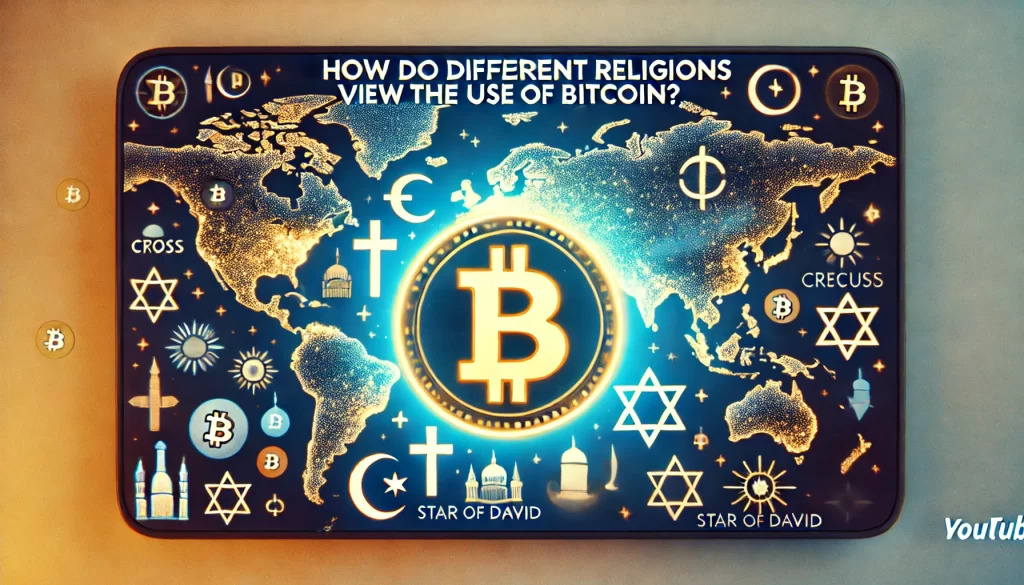Alright, let’s dive into a topic that’s probably going to stir up some controversy, but it’s one you need to hear if you’re looking to understand how different religions view the use of Bitcoin. Now, let me tell you, everything in life—whether it’s dating, finances, or your spiritual beliefs—connects back to your mindset and how you navigate your journey.
Bitcoin. It’s the hot topic everyone’s talking about, but not everyone’s on the same page, especially when it comes to religion. Here’s what you need to know:
Christianity and Bitcoin
Let’s kick things off with Christianity. Now, Christians have diverse opinions on Bitcoin, just like they do on most things. Some see it as a tool for freedom and financial autonomy—a way to break free from the constraints of traditional financial systems, which, let’s be real, can feel like they’re working against you more often than not. But here’s the kicker—others are skeptical. Why? Because the Bible warns about the love of money being the root of all kinds of evil. So, some Christians worry that getting too deep into the Bitcoin game might lead you down a path of greed or put your focus on the wrong things. It’s a balancing act—how do you leverage modern technology without losing sight of your values?
Islam and Bitcoin
Next up, let’s talk about Islam. Now, this is where things get interesting. In Islam, financial transactions are supposed to be clear and fair—no room for ambiguity or exploitation. The concept of riba (interest) is a big no-no. So, when it comes to Bitcoin, some Islamic scholars have given it the green light, seeing it as a way to engage in fair, interest-free transactions. But not everyone’s on board. Some argue that Bitcoin’s volatility and the potential for its misuse in illegal activities make it haram (forbidden). The takeaway? If you’re a Muslim, you might want to do some serious soul-searching—or consult a trusted scholar—before diving into the world of crypto.
Judaism and Bitcoin
Judaism offers another perspective. In Jewish law, business practices need to be ethical and contribute to the welfare of the community. Bitcoin’s decentralized nature appeals to some Jews because it can potentially reduce the power of corrupt institutions. However, there’s also a concern about Bitcoin being used in shady dealings or contributing to economic instability, which goes against the Jewish principle of Tikkun Olam—repairing the world. So again, it’s a mixed bag. It comes down to how you plan to use it—are you investing to build a better life, or are you getting sucked into the hype?
Hinduism and Bitcoin
Now, let’s take a look at Hinduism. In Hindu culture, wealth is often viewed as a double-edged sword—it can be a means to do good, but it can also be a source of attachment and distraction. Some Hindus might embrace Bitcoin as a modern tool for wealth generation, but there’s always that underlying caution about becoming too attached to material things. Hinduism teaches that true wealth comes from spiritual fulfillment, so if you’re going to get into Bitcoin, it’s crucial to keep your priorities straight. Are you using Bitcoin as a tool to support your spiritual journey, or is it becoming an obsession?
Buddhism and Bitcoin
Finally, Buddhism. Now, here’s a philosophy that places a lot of emphasis on mindfulness and avoiding attachment to material wealth. So, where does Bitcoin fit into that? For some Buddhists, the idea of investing in something as volatile and unpredictable as Bitcoin might feel like it’s in direct conflict with the principle of avoiding tanha (craving). But others might argue that Bitcoin is just another tool—neutral in itself—and what matters is how you use it. If you’re engaging with Bitcoin in a mindful way, without attachment, then it might just be another part of the path.
The Bottom Line
So, where does this leave you? Here’s the truth—no matter what religion you follow, your approach to Bitcoin is going to come down to your personal beliefs, your values, and your intentions. Are you using Bitcoin to improve your life and the lives of those around you? Or is it becoming a distraction, something that pulls you away from your true purpose? Just like in dating, self-improvement, or any other area of life, the key is to stay grounded, stay true to yourself, and keep your priorities in check.
This is probably going to piss some people off, but that’s okay—because this is a conversation we need to have. Don’t just follow the crowd. Think for yourself, make decisions that align with your values, and remember that true success—whether in love, life, or money—comes from staying true to who you are.





